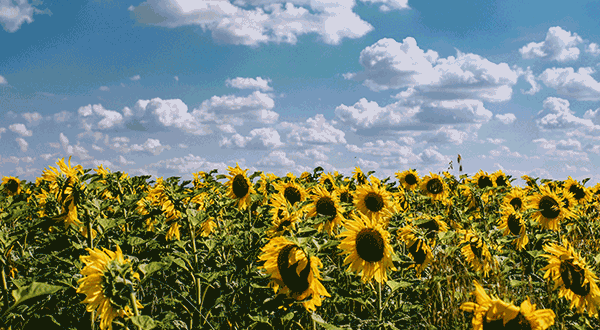March 15, 2022
Vladimir Putin’s decision to wage war has already brought destruction to the places and people of Ukraine, but it could also put millions of people at risk far from cities like Kyiv, Kharkov, and Mariupol. That’s because the war is making key food staples around the world more scarce and pricier, raising the prospect of food shortages and social unrest.
“Countries as far afield as Nigeria, Yemen, and Bangladesh are already feeling the effects of reduced grain exports,” says Peter Ceretti, a senior analyst with Eurasia Group. “But the knock-on effects could be much worse: soaring fertilizer prices, export bans, and a failed planting season in Ukraine could all mean that millions around the world go hungry.”
How bad is it? Prices for basic foodstuffs such as wheat,sunflower oil, and corn have hit record highs in recent days, as has the UN’s food price index, which measures the cost of several key staples together. With scant near-term prospects for peace, a global food crunch is coming.
The Ukraine war has made a bad situation worse. Even before the Russian invasion, the world was facing higher prices for energy, food, and shipping as post-pandemic demand roared back faster than supplies. The war has compounded all of that.
This is, in fact, a war between two superpowers … of agriculture. The world’s number one exporter of wheat has invaded the world’s number five exporter of the grain – together Russia and Ukraine provide about 30% of wheat in global markets. Ukraine has now banned exports entirely as a wartime security measure, and financial sanctions on Russia are making global buyers wary of purchasing Russian bushels at all.
The sunflower side of it. That yellow band on the Ukrainian flag is meant to depict the country’s vast golden fields of sunflowers. Ukraine is the single largest exporter of sunflower oil, accounting for more than 40% of the global supply. Russia isn’t far behind at about a quarter of the market. Sunflower oil is a crucial cooking oil for households in many developing countries (and it’s also the source of the crisp in potato chips.) The war has already halted activity at Ukraine’s sunflower crushing plants, causing a knock-on surge in demand for substitutes like palm oil, which is now also seeing soaring prices.
Fertile soil for a bigger crisis. What do farmers need to produce wheat and other crops? Aside from sun, land, water, and love, they need fertilizer, and lots of it. Who is the number one exporter of fertilizer? Russia. Moscow has already banned fertilizer exports, raising production costs for farmers from Boise to Brazil.
Who gets hurt the most? Higher food prices rattle the kitchen table in all countries, but those on the brink are the most vulnerable. More than 800 million people are already food insecure, says the UN, warning that 44 million people in 38 different countries could be pushed into outright famine this year.
For the Middle East and North Africa, it’s a perfect storm of challenges, says Ahmed Morsy, a Middle East analyst at Eurasia Group. “It’s three or four different pressures at the same time, from food and energy prices to global inflation at large. It’s unlike anything we’ve ever seen.”
As for food, the region is heavily dependent on Russian and Ukrainian grain. In Egypt, the largest single importer of Russian and Ukrainian wheat, market prices for bread have soared 50% already this month, with the government warning that wheat reserves are dwindling. Crisis-wracked Lebanon is facing shortages as well, while Libya, Tunisia, and Algeria are all on edge. War-ravaged Yemen, meanwhile, depends on the two countries for about 40% of its wheat imports, and is already facing famine.From Your Site Articles
- War in Ukraine: cascading impacts on global food supply - GZERO Media ›
- Danger to the acutely hungry: lack of access, or lack of money - GZERO Media ›
- Russia's war in Ukraine is starving the world - GZERO Media ›
- Russia plays hardball with blockage of Ukraine grain exports - GZERO Media ›
- Russia weaponizing blockage of Ukraine grain exports - GZERO Media ›
- Russia's weapon: blocking Ukraine grain exports - GZERO Media ›
- We've reached peak global food inflation, says IFPRI expert - GZERO Media ›
- António Guterres: the world won’t have enough food in 2023 without Russian fertilizer - GZERO Media ›
More For You
Bad Bunny during the Super Bowl LX halftime show press conference at Moscone Center.
Kirby Lee-Imagn Images
100 million: The number of people expected to watch the Super Bowl halftime performance with Bad Bunny, the Puerto Rican superstar and newly minted Album of the Year winner at the Grammys.
Most Popular
Think you know what's going on around the world? Here's your chance to prove it.
- YouTube
An imminent US airstrike on iran is not only possible, it's probable.
Americans are moving less — and renting more. Cooling migration and rising vacancy rates, especially across the Sunbelt, have flattened rent growth and given renters new leverage. For many lower-income households, that relief is beginning to show up in discretionary spending. Explore what's changing in US housing by subscribing to Bank of America Institute.
© 2025 GZERO Media. All Rights Reserved | A Eurasia Group media company.
